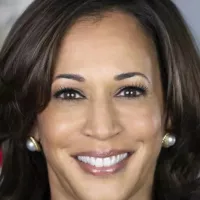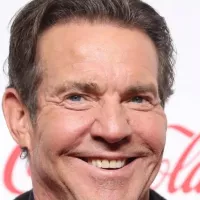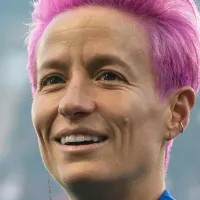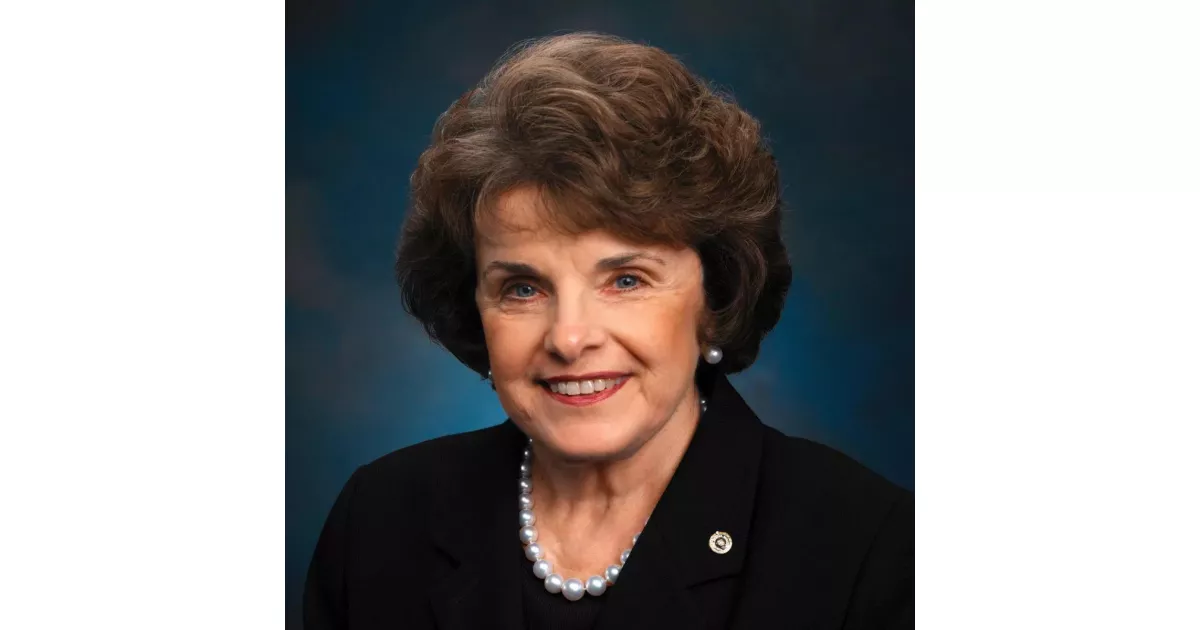How Dianne Feinstein built a successful career. Explore key moments that defined the journey.
Dianne Feinstein was a prominent American politician who served as a U.S. Senator for California from 1992 until her death in 2023. A member of the Democratic Party, she was a trailblazer for women in politics, known for her moderate stance and focus on gun control, national security, and environmental protection. Prior to her Senate career, she served as the Mayor of San Francisco from 1978 to 1988, navigating the city through challenging times. Her long career in public service left a lasting impact on California and the nation.
1955: Fellow at Coro Foundation
From 1955, Dianne Feinstein was a fellow at the Coro Foundation in San Francisco.
1956: End of fellowship at Coro Foundation
In 1956, Dianne Feinstein was no longer fellow at the Coro Foundation in San Francisco.
1960: Appointed to California Women's Parole Board
In 1960, Governor Pat Brown appointed Dianne Feinstein to the California Women's Parole Board.
1962: Marriage to Bertram Feinstein
In 1962, Feinstein married her second husband, neurosurgeon Bertram Feinstein, shortly after beginning her career in politics.
1966: End of term on California Women's Parole Board
In 1966, Dianne Feinstein's term on the California Women's Parole Board ended.
1969: Elected to San Francisco Board of Supervisors
In 1969, Dianne Feinstein was elected to the San Francisco Board of Supervisors.
1970: First Female President of the Board of Supervisors
In 1970, Dianne Feinstein became the first female president of the San Francisco Board of Supervisors.
1970: Appointed President of the San Francisco Board of Supervisors
In 1970, Dianne Feinstein was appointed as the first female president of the San Francisco Board of Supervisors.
1971: End of term as president of San Francisco Board of Supervisors
In 1971, Dianne Feinstein's term as first female president of the San Francisco Board of Supervisors ended.
1974: Term as president of San Francisco Board of Supervisors
In 1974, Dianne Feinstein served another term as president of the San Francisco Board of Supervisors.
1975: End of term as president of San Francisco Board of Supervisors
In 1975, Dianne Feinstein's term as president of the San Francisco Board of Supervisors ended.
November 27, 1978: Became Acting Mayor of San Francisco
On November 27, 1978, Dianne Feinstein became acting mayor of San Francisco after the assassinations of Mayor George Moscone and Supervisor Harvey Milk.
December 4, 1978: Inaugurated as Mayor of San Francisco
On December 4, 1978, Dianne Feinstein was inaugurated as San Francisco's first female mayor.
December 1978: End of term as president of San Francisco Board of Supervisors
In December 1978, Dianne Feinstein's term as president of the San Francisco Board of Supervisors ended.
1978: Succeeded Moscone as Mayor of San Francisco
In 1978, Dianne Feinstein became the Mayor of San Francisco after the assassination of Mayor George Moscone.
1980: Role in Jimmy Carter's Presidential Campaign
During the 1980 presidential election, Dianne Feinstein served on President Jimmy Carter's steering committee in California and as a Carter delegate to the Democratic National Convention. She was also selected as one of the four chairs of the 1980 Democratic National Convention.
1982: Cable Car System Closed for Rebuilding
In 1982, the San Francisco cable car system closed for rebuilding under Dianne Feinstein's leadership as mayor.
1983: Contract for San Francisco to Host DNC
In 1983, Dianne Feinstein and Democratic National Committee chairman Charles Manatt signed a contract, making San Francisco the host of the 1984 Democratic National Convention.
1984: Endorsement of Walter Mondale
During the 1984 presidential election, Dianne Feinstein endorsed former Vice President Walter Mondale.
1984: Oversaw the 1984 Democratic National Convention
In 1984, Dianne Feinstein, as mayor, oversaw the 1984 Democratic National Convention in San Francisco.
1984: Cable Car System Reopened
In 1984, The San Francisco cable car system rebuilding was completed in time for the Democratic National Convention during Dianne Feinstein's tenure as mayor.
January 8, 1988: Finished Second Term as Mayor
On January 8, 1988, Dianne Feinstein finished her second term as mayor of San Francisco.
1990: Support for Capital Punishment
In 1990, when Feinstein first ran for statewide office, she supported capital punishment.
November 3, 1992: Elected to the Senate
On November 3, 1992, Dianne Feinstein was first elected to the Senate.
November 1992: Elected to the U.S. Senate
In November 1992, Dianne Feinstein was elected to the U.S. Senate in a special election, becoming California's first female U.S. Senator.
November 1992: Sworn in as Senator
In November 1992, Dianne Feinstein was sworn in as a senator, becoming California's senior senator and the first female Jewish U.S. senator.
1992: Ran for U.S. Senate
In 1992, Dianne Feinstein ran for U.S. Senate in a special election to complete Wilson's term.
January 1993: Boxer took office
In January 1993, Boxer took office.
January 1993: Became Senior Senator
In January 1993, Dianne Feinstein became California's senior senator after Alan Cranston's retirement.
June 13, 1994: Commencement Address at Stanford Stadium
On June 13, 1994, Dianne Feinstein delivered the commencement address at Stanford Stadium.
1994: Authored Federal Assault Weapons Ban
In 1994, Dianne Feinstein authored the Federal Assault Weapons Ban.
1994: Re-elected to Senate
In 1994, Dianne Feinstein was re-elected to the Senate.
1994: Authored California Desert Protection Act
In 1994, Feinstein authored the California Desert Protection Act, which established Death Valley National Park, Joshua Tree National Park, and Mojave National Preserve.
1994: Federal Assault Weapons Ban Became Law
In 1994, Feinstein introduced the Federal Assault Weapons Ban, which became law.
1996: Opposition to Proposition 215
In 1996, Dianne Feinstein opposed Proposition 215, which aimed to legalize the medical use of cannabis in California.
1996: Vote Against the Defense of Marriage Act
In 1996, Dianne Feinstein was one of 14 senators who voted against the Defense of Marriage Act (DOMA), which defined marriage as a union between a man and a woman for federal law purposes.
1997: Founded Lake Tahoe Summit
In 1997, Feinstein founded the Lake Tahoe Summit to address environmental issues in the Lake Tahoe Basin.
1999: Secured Federal Grants to Purchase Headwaters Forest
In 1999, Feinstein helped secure $250 million in federal matching grants to purchase the 7,500-acre Headwaters Forest, guaranteeing the conservation of 12 ancient redwood groves.
2000: Re-elected to Senate
In 2000, Dianne Feinstein was re-elected to the Senate.
2000: Authored Lake Tahoe Restoration Act
In 2000, Feinstein authored the Lake Tahoe Restoration Act, which authorized $900 million in federal spending for Lake Tahoe's environmental protection.
2000: Santa Rosa and San Jacinto Mountains National Monument Act
In 2000, Feinstein authored the Santa Rosa and San Jacinto Mountains National Monument Act, designating 272,000 acres as a national monument.
November 3, 2001: Woodrow Wilson Award for Public Service
On November 3, 2001, Feinstein received the Woodrow Wilson Award for public service from the Woodrow Wilson Center of the Smithsonian Institution in Los Angeles.
2002: Nathan Davis Award
In 2002, Feinstein won the American Medical Association's Nathan Davis Award for "the Betterment of the Public Health".
2003: Vote Against Partial-Birth Abortion Ban Act
In 2003, Feinstein voted against the Partial-Birth Abortion Ban Act, a proposal to ban intact dilation and extraction.
2004: Called for Death Penalty in Espinoza Case
In 2004, Feinstein called for the death penalty in the case of San Francisco police officer Isaac Espinoza.
2004: Expiration of Federal Assault Weapons Ban
In 2004, the Federal Assault Weapons Ban, which was introduced by Feinstein, expired.
2004: Ethanol Tax Credit Introduced
In 2004, the Volumetric Ethanol Excise Tax Credit was introduced, which Feinstein later worked to eliminate.
September 2005: Vote Against John Roberts
In September 2005, Dianne Feinstein was one of five Democratic senators on the Senate Judiciary Committee to vote against Supreme Court nominee John Roberts, citing his failure to state positions on social controversies.
January 2006: Opposition to Samuel Alito Nomination
In January 2006, Dianne Feinstein said she would vote against Supreme Court nominee Samuel Alito, but expressed disapproval of a filibuster, stating that there wasn't sufficient cause to block the nomination.
2006: Re-elected to Senate
In 2006, Dianne Feinstein was re-elected to the Senate.
2006: Co-sponsored Legislation to Protect Wilderness in Northern California
In 2006, Feinstein co-sponsored legislation with Barbara Boxer that permanently protected approximately 300,000 acres of wilderness in Northern California.
2007: Chaired Senate Rules Committee
In 2007, Dianne Feinstein chaired the Senate Rules Committee (2007-2009).
2007: Led Bipartisan Effort to Reduce Automotive Greenhouse Gas Emissions
In 2007, Feinstein led a bipartisan effort as part of the wider Energy Independence and Security Act to significantly reduce automotive greenhouse gas emissions, which accounted for 26 percent of total U.S. emissions at the time.
2008: Support for Democratic Presidential Candidates
As a superdelegate in the 2008 Democratic presidential primaries, Dianne Feinstein initially supported Hillary Clinton, but later backed Barack Obama after he became the presumptive nominee. She also lent her home for a private meeting between Clinton and Obama. She did not attend the 2008 Democratic National Convention due to an injury.
2008: Authored Amendment to Consolidated Appropriations Act
During the 110th Congress, Feinstein authored an amendment to the Consolidated Appropriations Act, 2008, mandating all major sources of greenhouse gasses to annually report their emissions to the Environmental Protection Agency.
July 12, 2009: Support for Sonia Sotomayor Nomination
On July 12, 2009, Dianne Feinstein said the Senate would confirm Supreme Court nominee Sonia Sotomayor, praising her experience and ability to overcome "adversity and disadvantage".
2009: Chaired Senate Intelligence Committee
From 2009, Dianne Feinstein chaired the Senate Intelligence Committee.
2009: Chair of Inaugural Ceremonies
In 2009, Dianne Feinstein chaired the United States Congress Joint Committee on Inaugural Ceremonies and acted as mistress of ceremonies, introducing each participant at the 2009 presidential inauguration, becoming the first woman to have presided over a U.S. presidential inauguration.
2010: Ten-in-Ten Fuel Economy Act
Between 2010 and 2020, the Ten-in-Ten Fuel Economy Act raised corporate average fuel economy standards for America's fleet of vehicles by at least 10 miles per gallon, the largest increase in fuel efficiency in almost three decades.
May 12, 2011: Co-sponsorship of PIPA
On May 12, 2011, Dianne Feinstein co-sponsored the PIPA (Protect Intellectual Property Act).
June 16, 2011: Senate Passed Amendment to Eliminate Ethanol Tax Credit
On June 16, 2011, the Senate passed an amendment co-sponsored by Feinstein to the Economic Development Revitalization Act of 2011 that eliminated the Volumetric Ethanol Excise Tax Credit.
2011: Introduction of Bill to Repeal DOMA
In 2011, Dianne Feinstein introduced a bill aimed at repealing the Defense of Marriage Act (DOMA).
2012: Vote for Extension of Patriot Act and FISA Provisions
In 2012, Dianne Feinstein voted for the extension of the Patriot Act and the FISA provisions.
2012: Re-elected to Senate
In 2012, Dianne Feinstein was re-elected to the Senate.
2012: Received Record Votes in Senate Election
In the 2012 election, Dianne Feinstein received 7.86 million votes, which was, until 2024, the most popular votes received by any U.S. Senate candidate in history.
January 2013: Proposed New Assault Weapons Ban
In January 2013, Feinstein proposed a bill with Representative Carolyn McCarthy to ban certain assault weapons and large-capacity magazines, following the Sandy Hook Elementary School shooting.
June 2013: Calling Edward Snowden a "Traitor"
In June 2013, Dianne Feinstein called Edward Snowden a "traitor" after his leaks went public.
October 2013: Criticism of NSA Monitoring of Foreign Leaders
In October 2013, Dianne Feinstein criticized the NSA for monitoring telephone calls of foreign leaders friendly to the U.S.
October 2013: Reaffirmation of Calling Edward Snowden a "Traitor"
In October 2013, Dianne Feinstein said she stood by her statement of calling Edward Snowden a "traitor".
October 20, 2013: Endorsement of Hillary Clinton for President
On October 20, 2013, Dianne Feinstein was one of 16 female Democratic senators to sign a letter endorsing Hillary Clinton for president ahead of the 2016 election.
November 2013: Promotion of FISA Improvements Act
In November 2013, Dianne Feinstein promoted the FISA Improvements Act bill, which included a "backdoor search provision" allowing intelligence agencies to continue certain warrantless searches.
2013: Defense of NSA Information Collection Programs
Following the 2013 mass surveillance disclosures involving the National Security Agency (NSA), Dianne Feinstein promoted and supported measures to continue the information collection programs.
2013: Liberal Lioness
In 2013, The New York Times called Feinstein a "liberal lioness," highlighting her advocacy for gun control, abortion access, environmental protection, and a strong national defense.
December 9, 2014: Statement on CIA Torture Report
On December 9, 2014, the day parts of the Senate Intelligence Committee report on CIA torture were released to the public, Dianne Feinstein called the government's detention and interrogation program a "stain on our values and on our history".
2014: Accusation of CIA Snooping
In 2014, Dianne Feinstein accused the CIA of snooping and removing files from congressional computers, suggesting a violation of the separation of powers.
July 2015: Supported Iran Nuclear Deal Framework
In July 2015, Feinstein supported the Iran nuclear deal framework, citing unprecedented inspections for verification.
2015: Support for Medical Cannabis Use for Veterans
In 2015, Dianne Feinstein supported legislation that would allow medical cannabis to be recommended to veterans in states where its use is legal.
2015: Vote Against Rohrabacher-Farr Amendment
In 2015, Dianne Feinstein was the only Democrat at a Senate hearing to vote against the Rohrabacher–Farr amendment, legislation that limits the enforcement of federal law in states that have legalized medical cannabis, citing her belief that cannabis is a gateway drug.
2015: End of term as chair of the Select Committee on Intelligence
In 2015, Dianne Feinstein's term as chair of the Select Committee on Intelligence ended.
2015: End of term as chair of Senate Intelligence Committee
In 2015, Dianne Feinstein's term as chair of the Senate Intelligence Committee ended.
March 2016: Meeting with Merrick Garland
After President Obama nominated Merrick Garland to the Supreme Court in March 2016, Dianne Feinstein met with Garland and called on Republicans to meet with him.
September 2016: Signed AIPAC-sponsored Letter on Israeli Settlements
In September 2016, Feinstein signed an AIPAC-sponsored letter urging Obama to veto "one-sided" resolutions against Israel.
2016: Sponsorship of Bill on Encryption
After the 2016 FBI–Apple encryption dispute, Dianne Feinstein and Richard Burr sponsored a bill that would likely have criminalized all forms of strong encryption in electronic communication between citizens.
2016: Opposition to Proposition 64
In 2016, Dianne Feinstein opposed Proposition 64, the Adult Use of Marijuana Act, which aimed to legalize recreational cannabis in California.
2016: Co-sponsored Extension of Lake Tahoe Restoration Act
In 2016, Feinstein co-sponsored a bipartisan extension of the Lake Tahoe Restoration Act, authorizing another $415 million.
2016: Requested Creation of Mojave Trails, Sand to Snow, and Castle Mountains National Monuments
In 2016, Feinstein requested President Obama to create Mojave Trails, Sand to Snow, and Castle Mountains national monuments.
February 2017: Request for Information from Neil Gorsuch
In February 2017, Dianne Feinstein requested that Supreme Court nominee Neil Gorsuch provide information on cases in which he had assisted with decision-making.
April 2017: Booed at Town Hall for Opposing Single-Payer Health Insurance
In April 2017, Feinstein was booed at a town hall meeting in San Francisco when she stated that she did not support a proposal for single-payer health insurance.
June 7, 2017: Urged Senate to Forgo Vote for Sanctions on Iran
On June 7, 2017, Feinstein and Senator Bernie Sanders urged the Senate to forgo a vote for sanctions on Iran after the Tehran attacks.
July 2017: Expressed Concern Over North Korea's Nuclear Capabilities
During a July 2017 appearance on Face the Nation after North Korea conducted a second test of an intercontinental ballistic missile, Feinstein said the country had proven itself a danger to the U.S.
July 2017: Estimated Democratic Opposition Would Defeat ACA Repeal
During a news conference at the University of California, San Diego in July 2017, Feinstein estimated that Democratic opposition would prove sufficient to defeat Republican attempts to repeal the ACA.
August 8, 2017: Called for Dialogue with North Korea
On August 8, 2017, Feinstein called for the U.S. to "quickly engage North Korea in a high-level dialogue without any preconditions".
August 2017: Wrote Op-Ed on Health-Care Reform
In an August 2017 op-ed, Feinstein suggested that Trump could secure health-care reform if he compromised with Democrats.
August 29, 2017: Hope for Trump to Become a Good President
At an August 29, 2017, event in San Francisco, Dianne Feinstein expressed hope that Trump could become a good president if he learned and changed.
September 2017: Disagreed with Trump's Threat to Destroy North Korea
In September 2017, Feinstein released a statement disagreeing with Trump's threat to destroy North Korea, calling it a "bombastic threat".
October 2017: Declared Intention to Run for Reelection
In October 2017, Dianne Feinstein declared her intention to run for reelection in 2018.
2017: Ranking Member of Senate Judiciary Committee
In 2017, Dianne Feinstein became the ranking member of the Senate Judiciary Committee.
2017: Became Top Democrat on Senate Judiciary Committee
In 2017, Dianne Feinstein became the top Democrat on the Senate Judiciary Committee, the first woman to hold that position.
2017: Criticism of Transgender Military Enlistment Ban
Later in 2017, Dianne Feinstein criticized the banning of transgender enlistments in the military under the Trump administration.
January 9, 2018: Release of Fusion GPS Transcript
On January 9, 2018, Dianne Feinstein released a transcript of the Senate Judiciary Committee's August 2017 interview with Fusion GPS co-founder Glenn Simpson about the Trump-Russia dossier, doing so unilaterally after the committee chairman refused.
July 30, 2018: Receipt of Letter from Christine Blasey Ford
On July 30, 2018, Dianne Feinstein received a letter from Christine Blasey Ford accusing Brett Kavanaugh of sexual assault in the 1980s, with Ford requesting confidentiality.
September 14, 2018: Referral of Ford Allegation to the FBI
On September 14, 2018, Dianne Feinstein referred Christine Blasey Ford's allegation against Brett Kavanaugh to the FBI, after the Senate Judiciary Committee hearings and media leaks.
October 6, 2018: Kavanaugh Confirmed to Supreme Court
On October 6, 2018, Brett Kavanaugh was confirmed to the Supreme Court.
2018: Opposed Capital Punishment
By 2018, Feinstein opposed capital punishment, marking a change from her earlier stance.
2018: Co-sponsorship of the STATES Act
In 2018, Dianne Feinstein softened her stance on marijuana and co-sponsored the STATES Act, which sought to protect states from federal interference regarding both medical and recreational cannabis use.
2018: Re-elected to Senate
In 2018, Dianne Feinstein was re-elected to the Senate.
2018: Centrism Emphasis
In 2018, the Los Angeles Times reported that Feinstein emphasized centrism when first running for statewide office in the 1990s, and later shifted leftward as California became more Democratic.
February 2019: Confrontation with Sunrise Movement
In February 2019, Feinstein was confronted by youth from the Sunrise Movement about the Green New Deal, stating "there's no way to pay for it".
2019: Vote for Trump's Defense Budget
In 2019, Dianne Feinstein voted in favor of President Trump's $675-billion defense budget bill for FY 2019.
2019: Authored Addressing Climate Financial Risk Act and Co-Sponsored Climate Action Rebate Act
In 2019, Feinstein authored the Addressing Climate Financial Risk Act and co-sponsored the Climate Action Rebate Act. While both failed to pass, elements of her climate risk act were incorporated into a Biden executive order, and a battery storage tax credit she co-sponsored was included in the Inflation Reduction Act.
2019: Authored California Desert Protection and Recreation Act
In 2019, Feinstein authored the California Desert Protection and Recreation Act, furthering landscape conservation and outdoor recreation opportunities in the California desert.
2020: CAFE Standards Subject to Adjustments
By 2020, CAFE standards became subject to periodic adjustments by the National Highway Traffic Safety Administration under the Administrative Procedure Act.
2020: Co-sponsorship of EARN IT Act
In 2020, Dianne Feinstein co-sponsored the EARN IT Act, which seeks to create a committee to decide best practices for websites to be protected by section 230 of the Communications Decency Act, potentially outlawing end-to-end encryption.
2020: Support for Joe Biden in 2020 Presidential Election
In 2020, as the presidential election approached, Dianne Feinstein indicated her support for former Vice President Joe Biden, surprising some due to the potential candidacy of fellow California Senator Kamala Harris.
2020: Participation in Amy Coney Barrett Confirmation Hearings
In the fall of 2020, Dianne Feinstein participated in the confirmation hearings for Amy Coney Barrett to the Supreme Court, and faced criticism for her handling of the hearings.
March 28, 2021: Longest-Serving California Senator
On March 28, 2021, Dianne Feinstein became the longest-serving U.S. senator from California, surpassing Hiram Johnson.
2021: Decision Not to Seek Judiciary Committee Leadership
After the 2020 election, Dianne Feinstein announced that she would not seek to serve as chair or as ranking member of the Judiciary Committee in 2021.
2021: End of term as ranking member of Senate Judiciary Committee
In 2021, Dianne Feinstein's term as ranking member of the Senate Judiciary Committee ended.
November 5, 2022: Longest-Serving Female Senator
On November 5, 2022, Dianne Feinstein became the longest-serving female senator in U.S. history.
2022: Lead Senate Sponsor of Respect for Marriage Act
In 2022, Dianne Feinstein served as the lead Senate sponsor of the Respect for Marriage Act, which repealed DOMA and mandated federal and state recognition of same-sex and interracial marriages.
2022: Call for Congressional Action on Abortion Rights
In 2022, after the Supreme Court overturned Roe v. Wade, Feinstein called for congressional action to protect abortion rights and supported lifting the Senate filibuster to pass such legislation with a simple majority.
February 2023: Announced Retirement Plans
In February 2023, Dianne Feinstein announced she would not seek reelection in 2024 and intended to retire upon completion of her term.
March 1, 2023: Co-sponsored Lake Tahoe Restoration Act Reauthorization
On March 1, 2023, Feinstein co-sponsored a second bipartisan, bicameral reauthorization of the Lake Tahoe Restoration Act's activities with senators Catherine Cortez Masto, Jacky Rosen, and Alex Padilla – six months before her death.
October 1, 2023: Appointment of Laphonza Butler
On October 1, 2023, Governor Newsom appointed Laphonza Butler to fill Feinstein's vacant Senate seat.
2024: Butler's Decision Not to Run
In 2024, Laphonza Butler chose not to run for Feinstein's Senate seat.
2032: Automobile Fuel Economy
As a result of Feinstein's legislation, average fleet fuel economy for new automobiles will climb to approximately 60 miles per gallon by 2032, cutting greenhouse gas emissions from passenger and commercial vehicles in half without impeding automotive performance or degrading traffic safety.
Mentioned in this timeline

Richard Ramirez known as the Night Stalker was an American...

Bernie Sanders is a prominent American politician currently serving as...

Barack Obama the th U S President - was the...

Hillary Diane Rodham Clinton is a prominent American politician lawyer...
Facebook is a social media and networking service created in...

Kamala Harris is an American politician and attorney She served...
Trending

43 minutes ago Dennis Quaid expresses admiration for Donald Trump, discusses political climate in United States.

44 minutes ago Hillary Clinton Addresses Ghislaine Maxwell's Presence at Chelsea's Wedding Amidst Controversy.

44 minutes ago Luciano Darderi Achieves Santiago QF; Predictions for Navone vs Kopriva Match

2 hours ago Toriano Pride Jr. shines at NFL Combine, impressing Vikings potential draft pick.

2 hours ago Rapinoe Reacts to Trump Invite Criticism Amidst Hockey Team's Political Debate.

2 hours ago Townsend vs. Masarova: WTA Austin Quarterfinal Prediction and Masarova's Quarterfinal Entry
Popular

Jesse Jackson is an American civil rights activist politician and...

Susan Rice is an American diplomat and public official prominent...

XXXTentacion born Jahseh Dwayne Ricardo Onfroy was a controversial yet...

Michael Joseph Jackson the King of Pop was a highly...

Barack Obama the th U S President - was the...

Hillary Diane Rodham Clinton is a prominent American politician lawyer...
